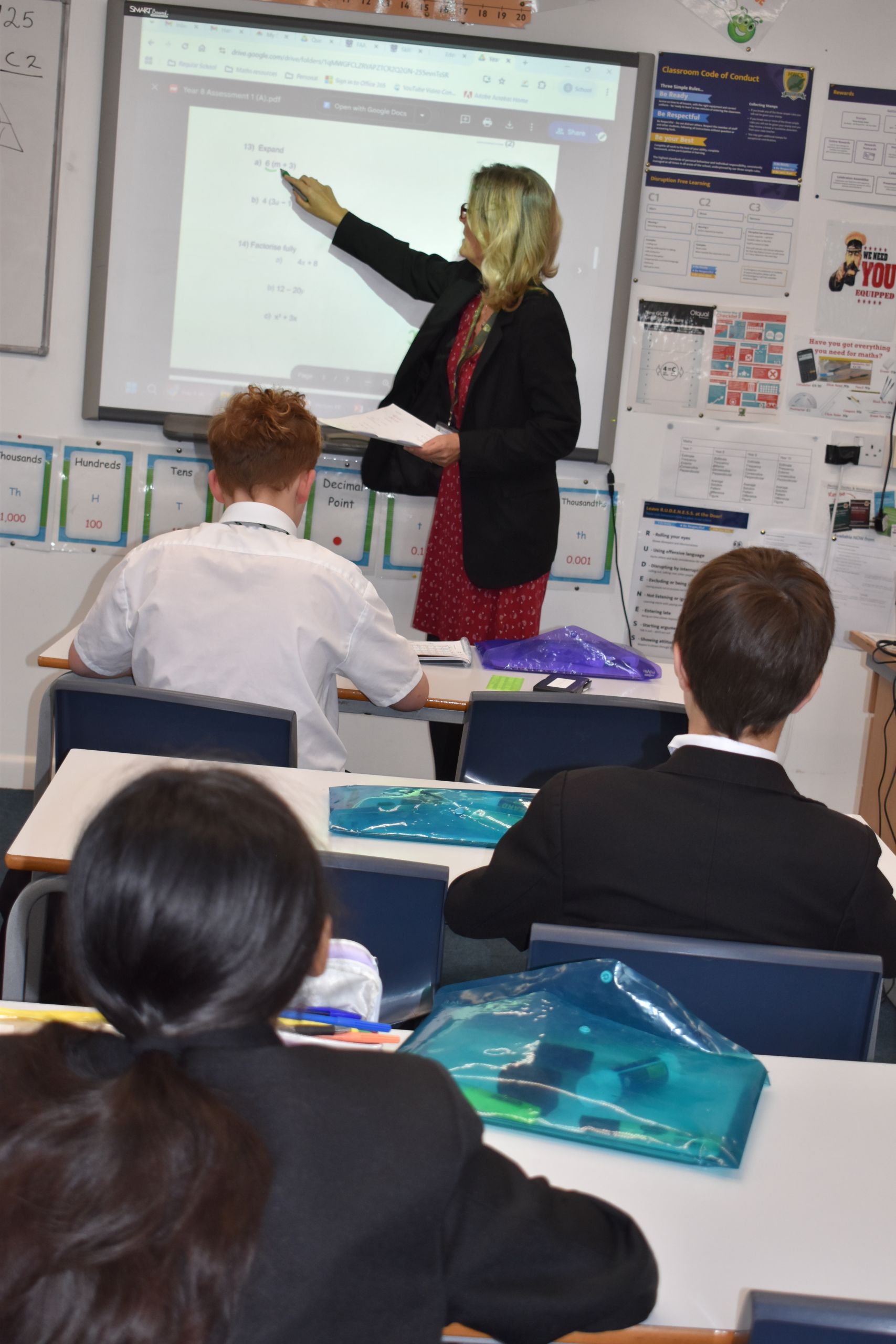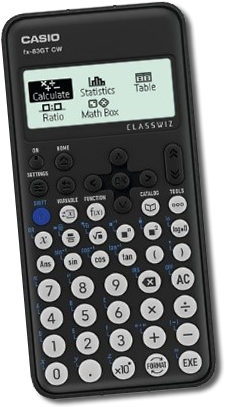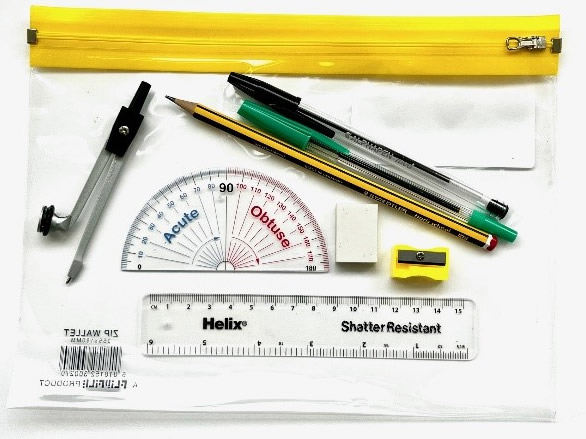Welcome to the Mathematics Department
Mathematics is more than numbers and methods – it is about equipping our students with the skills they need to approach challenges with confidence. Our teaching nurtures perseverance, resilience, and creativity, encouraging learners to become problem solvers who seek unique solutions.
We are committed to success for all, ensuring every learner feels capable and empowered to reach their full potential.
How does the Mathematics Department achieve that?
We achieve our mission through a carefully planned curriculum that builds on prior knowledge and reinforces key concepts over time. Retrieval practice and a spiral approach ensure that students regularly revisit and consolidate their learning, strengthening understanding and confidence. A strong focus on numeracy equips students with the skills they need to apply mathematics across all areas of study and in everyday life.
Lessons are designed to challenge and stretch learners of all abilities, encouraging perseverance, resilience, and creative problem solving. Students are supported to think critically and approach problems from different perspectives, developing the skills of independent, confident mathematicians.

Qualification
Ultimately, at the end of their time at Harrow Way, students study for their GCSE Mathematics qualification. Our exam board is Edexcel and students are either entered for the foundation or higher tiers.
The awards for each tier are:
The qualification for both tiers is graded through 100% examination, spread over three papers.

Equipment
It is very important that students are fully equipped for all their maths lessons. They may need any of their equipment at any point; familiarity with their own calculator and geometry set creates a sense of confidence.
Students in all year groups are expected to have the following:

Calculators and Geometry sets are available to purchase from the school via SCOPAY.

Maths Team

Where to Get Help
Parental support is a key part of student success in mathematics. Encouraging regular practice of numeracy skills at home, discussing problem-solving strategies, and celebrating effort and progress helps build confidence and resilience.
Parents can support learning by asking about topics covered in class, reviewing homework together, and encouraging their child to revisit previous material to reinforce understanding. Practising fundamentals such as time, times tables, measuring, budgeting, and other everyday calculations provides simple and effective ways to strengthen key life skills and make maths meaningful.
We also provide resources, guidance and updates on the curriculum, so parents can feel confident in supporting their child’s learning journey. Engaged and informed parents help ensure every learner can achieve their full potential in mathematics.
There are many websites where students and parents can get help with homework or revision, this is by no way a comprehensive list but here are a few of our favourites.
Curriculum Content
Key Stage 3
Year 7

Year 8

Year 9

Key Stage 4
The Edexcel GCSE in Mathematics qualification requires students to:
- Develop deeper knowledge, skills and understanding of mathematical methods, concepts and problem-solving skills in number, algebra, geometry, measures, proportion, statistics and probability.
- Use their knowledge and understanding to make connections between mathematical concepts.
- Apply the functional elements of mathematics in everyday and real-life situations.
- Solve problems using their mathematical skills in both real-life and abstract contexts.

